The Plextor M6V (256GB) SSD Review
by Billy Tallis on October 12, 2015 8:00 AM ESTSequential Read Performance
Just like the random read test, sequential reads are tested across the span of a full drive and a representative sample of queue depths. Most operations involving large files (typically images and videos) fall under this test's purveiw, but streaming or playing even the highest resolution videos won't be a challenge for any of these drives. Copying files to another SSD or loading a new level in a video game would be more likely to show noticeable difference from better performance here.
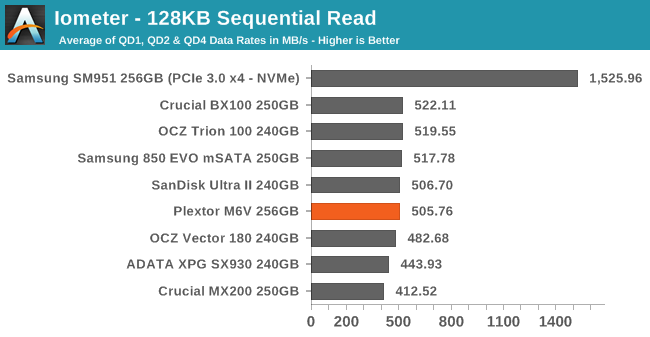
The SATA interface's speed limit determines almost everything in this graph. Almost all drives, including the M6V, are close enough that the differences hardly matter.
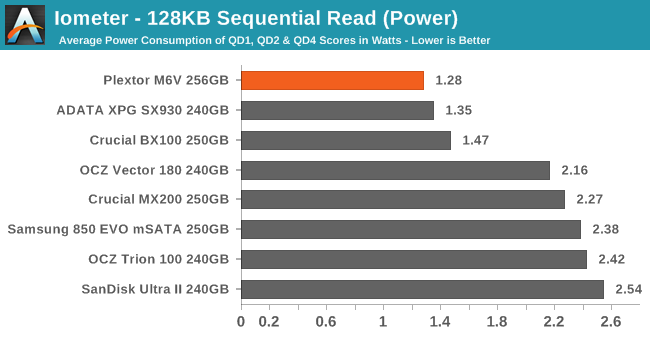
On the other hand, power consumption varies considerably. The TLC drives are at the bottom as usual, and the M6V is at the top with only a little bit of competition.
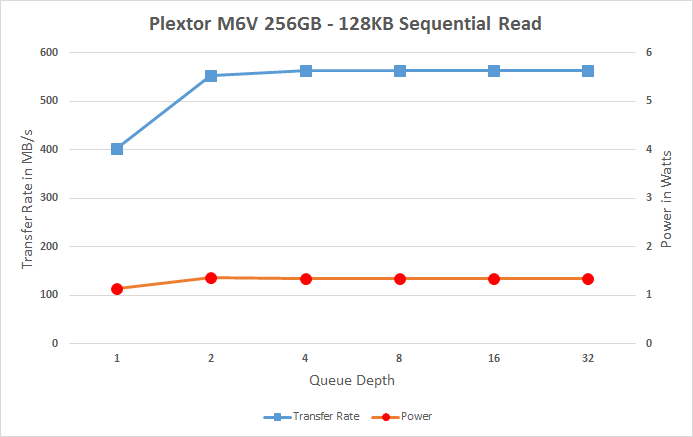 |
|||||||||
| Default | |||||||||
The queue depth scaling reveals the source of the variation in the averages above. The only drives below the M6V in performance are the ones that can't hit the limit at a queue depth of two, and the drives above the M6V all have better QD 1 performance.
Sequential Write Performance
The sequential write isn't limited to a small span of the disk, as that usually doesn't make a difference for this performance metric. As always, our averages are of the lower queue depths, but scaling to higher queue depths is also investigated. Bulk file copies and recording uncompressed video are the kind of uses that depend on sequential write performance.
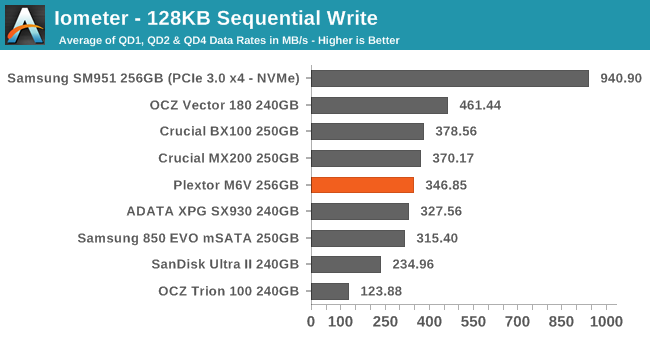
The M6V is back in the middle of the pack, and none of the SATA drives of this size are quite able to reach the limit of the interface.
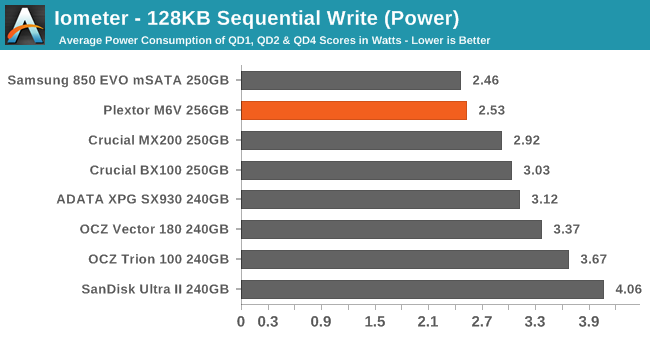
The M6V doesn't quite take first place for power consumption, but it comes within spitting distance of the surprisingly efficient Samsung 850 EVO.
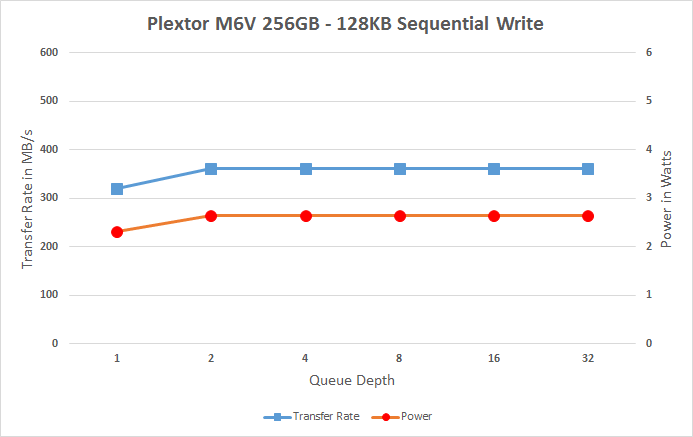 |
|||||||||
| Default | |||||||||
Most drives have flat performance across this test, indicating that a 128kB block of data is already large enough for the drive to extract all the speed it can.










51 Comments
View All Comments
lprates - Thursday, October 15, 2015 - link
It doesn't add nothing new to the market